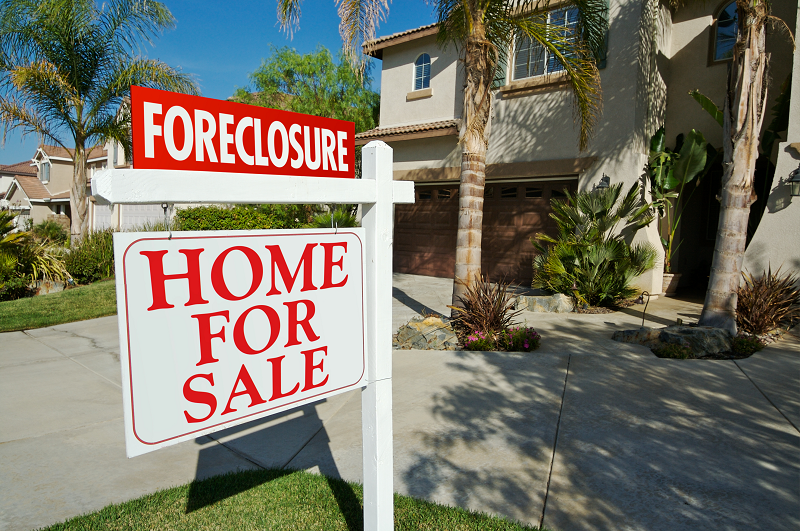
Are you a homeowner in Idaho having trouble paying off your mortgage loan or have missed payments? If so, you may risk foreclosure proceedings and losing your home. To find ways to avoid the credit problems of a foreclosure, you will first need to learn about Idaho foreclosure law.
Usually, the foreclosure process does not start until the payments are at least 120 days late in Idaho. Ask for a loan modification to ensure your real estate property does not end up getting sold in a foreclosure sale. Below, you will learn all the details about the Idaho foreclosure law and how to avoid foreclosure.
Ready to learn about foreclosure laws? Then, let’s get started!
Idaho Foreclosure Laws
Before we delve straight into Idaho foreclosure laws, we first need to understand mortgage loans between a lender and a borrower. When you get a mortgage loan in Idaho, you must sign a deed of trust and a promissory note.
The promissory note outlines your commitment to repay the loan. The deed of trust gives the lender a security interest in your home, which often includes a power of sale clause. As such, the deed trust gives the lender the right to sell your home via foreclosure.
If you miss any mortgage payments, you will likely receive a grace period of 10 to 15 days before getting a late fee on top of the monthly payment. Reviewing the promissory note, you can find out the grace period for your mortgage loan.
If you miss a couple of payments, the lender will likely call your phone number and send you letters to try to collect on the loan.
Idaho statutes and federal law require the bank or mortgage loan company to contact you by phone or try to contact you to offer foreclosure alternatives. Idaho code requires that to occur no later than 36 days after a missed payment and at least 36 days after every future missed reimbursement.
Then, the law requires the lender to let you know in writing about loss mitigation options no longer than 45 days after missing a payment. Furthermore, the Fair Debt Collection Practices Act does provide some exceptions where borrowers can’t receive collection notices if they file for bankruptcy.
Idaho Foreclosure Process

The Idaho foreclosure process entails a breach letter sent to the borrower when late payments are made. The breach letter is a notice of default. A part of your deed of trust includes the provision to send a breach letter explaining how your loan is in default. If you don’t pay off the loan payments, your lender can move forward with the foreclosure.
Federal law requires the lender to wait at least 120 days before starting the foreclosure process if repayment does not occur. Yet, for borrowers who violate a due-on-sale clause or if the lender takes part in an action against a superior holder of liens, foreclosure may start earlier.
Idaho foreclosure laws involve sending the first notice of default, a notice of foreclosure. The county recorder’s office records that notice, which begins the non-judicial foreclosure process.
Then that office mails a copy of the notice to the homeowners and other third parties. You will receive a form as part of the notice where you can ask for a loan modification.
You will have up to 30 days to send the loan modification request form. The lender then has up to 45 days to respond to the loan modification request, including either approving the modification, denying it, or requesting more info. Any notice of sale or foreclosure notices cannot continue until the lender denies the loan modification in writing.
Foreclosure Laws as a Homeowner
When following the foreclosure laws, the homeowners should receive the notice of sale from the trustee at least 120 days before the final sale date. However, you may receive the notice of default and the notice of sale at the same time because there are no laws requiring the notices to be sent at separate times.
If you as a homeowner do not pursue modifying the loan or other ways to overcome legal issues, your house may get sold to the highest bidder, and you would face eviction. However, you can work with foreclosure lawyers to find a loophole.
Also, you can stop a foreclosure in its tracks. You have a right to reinstate before a foreclosure sale proceeds. Reinstatement involves paying off the overdue loan amount, all late fees, and other costs. That will bring the loan back to an adequate financial standing and will stop the foreclosure from continuing.
The borrower or homeowner has as much as 115 days to reinstate the loan after the notice of default is recorded at the county recorder’s office. In certain states, you also have a redemption period after the sale of a home. However, in an Idaho foreclosure, there is no redemption period.
At a foreclosure sale, the buyer has entire possession of the home ten days after the auction sale. Any adult occupant of the house who is still residing there can then get evicted.
Avoiding Foreclosure in Idaho
The state of Idaho does provide foreclosure prevention resources. For example, you may want to pursue refinancing your loan and modifying the payment amounts. If you lost your job and your income is low, you may want to pursue other ways to make the payments.
You can try contract work or part-time work, as well as selling other assets to gather the funds for your missed payments. If you can make up the missed payments and cover the late fees, you can stop the foreclosure or avoid it before it starts.
You can reinstate the loan by covering all missing payments and late fees via a lump-sum payment. You usually have a specific date by which you can cover reinstating the loan. Afterward, you can continue your standard monthly payments.
Another way to stop foreclosure is to challenge it in a court of law. If you believe that the lender made a mistake or has broken the law, you can seek out the help of foreclosure lawyers at a top law firm and take the lender to court.
Property owners also have the right to take part in mediation services. In these cases, a lender, borrower, and a third-party mediator meet to mediate possible solutions like:
- Short sale
- Loan modification
- Deed in lieu of foreclosure
- Repayment plan
Can You Sell Your House in Foreclosure in Idaho
You can sell a house as part of a short sale with your lender’s assistance to avoid a foreclosure. However, that option is only available when the lender has already started trying to collect late payments and is in the process of pre-foreclosure.
A short sale involves selling real estate property at an asking price less than what is due on the mortgage loan. All of the money made from the short sale goes straight to the lender. The lender can then either choose to forgive the remaining balance or go forward with a deficiency judgment requiring the borrower to pay back the remaining balance or part of it.
Before you can even start a short sale, the lender must approve the process. They require a borrower to submit documentation explaining why a short sale is the best option for both parties. Short sales can become a lengthy process and take as long as one year to complete.
In addition, you can usually sell your home through the regular real estate market before you start facing any foreclosure notices.
If you see that you are having trouble making your monthly mortgage payments and may have recently missed your first payment, you may want to start looking for a real estate agent to help you sell the home quickly before getting a notice of default.
With a realtor and a photographer, you can get your home on the market with listings on Zillow, RedFin, and elsewhere. Soon, you’ll have potential buyers coming to view your property. Next, you’ll get an offer and go through the sales process with the help of a real estate attorney.
You may need to fix up the home after a property inspection. Then, on closing day, you’ll sell the home and, hopefully, pay off the mortgage loan completely.
Conclusion
The Idaho foreclosure law has numerous ways to avoid losing your home, such as via loan modification. Or you can sell it at fair market value before facing foreclosure and eviction. However, you may find that the cost of selling a house comes with extensive repairs and renovations.
In such cases, you may want to sell to cash home buyers in Boise. Cash buyers can purchase properties in their as-is conditions. If you’re looking to sell a house fast in Idaho, there are significant benefits of selling a house to cash buyers, such as completing the sale in only a few weeks.
We buy houses Nampa homeowners are trying to sell, so make sure to contact us today!

